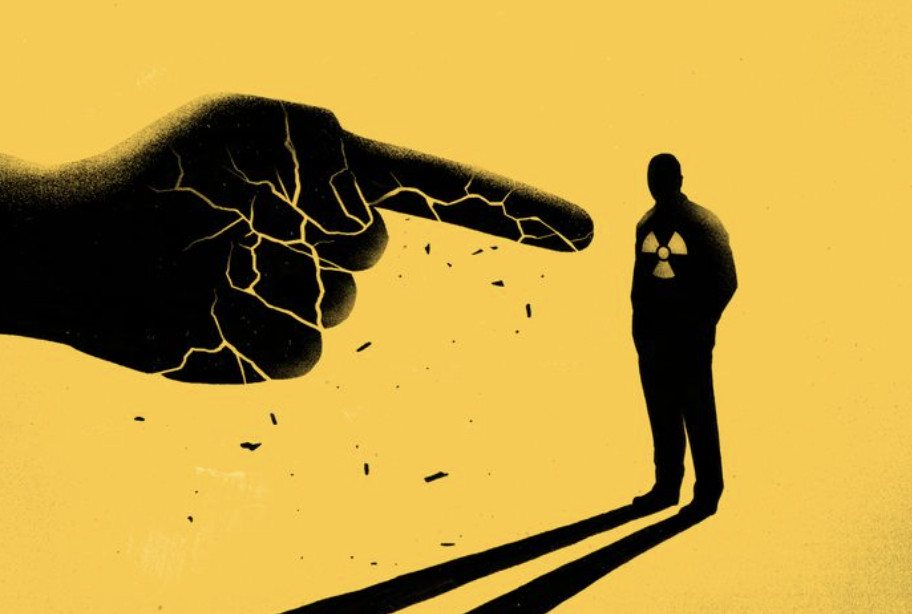Identifying Toxic People: Red Flags and Warning Signs top 10 sign
How Toxic Relationships Affect Your Mental Health and Well-Being

Identifying Toxic People: Red Flags and Warning Signs
Introduction:
Navigating relationships can be challenging, especially when dealing with individuals who bring more harm than good into your life. Toxic people often exhibit behaviors that can undermine your happiness, self-esteem, and mental well-being. Identifying these negative influences early on is crucial for protecting yourself and fostering healthier connections. In this guide, we’ll explore the key red flags and warning signs that can help you recognize toxic individuals and take steps to minimize their impact on your life.

Navigating relationships can be challenging, especially when dealing with individuals who may not have your best interests at heart. Toxic people can significantly impact your mental and emotional well-being. Here are the top 10 signs to help you identify them and protect yourself:
- Constant Criticism
- What to Look For: They regularly criticize you, focusing on your flaws and mistakes rather than offering constructive feedback. This criticism is persistent, aimed at belittling or diminishing your self-worth.
- Impact: Over time, constant criticism can erode your confidence and self-esteem, making you feel inadequate and unworthy.
- Self-Centered Behavior
- What to Look For: Conversations with them always center around their needs, problems, and experiences. They show little interest in your life or concerns, and their responses are often self-serving.
- Impact: You might feel neglected or unimportant, as their behavior consistently prioritizes their own interests over mutual respect and empathy.
- It looks like you might want to direct readers to additional information on a topic. Here’s a follow-up line for your reference:
For more insights on dealing with toxic people and fostering healthy relationships, visit [MAAC24](https://maac24.com/) to explore further resources and guidance.
- Manipulation and Gaslighting
- What to Look For: They often twist facts or events to make you question your own memory or perception. Gaslighting tactics can include denying previous statements, shifting blame, or making you feel crazy for expressing your feelings.
- Impact: This manipulation can create confusion, self-doubt, and emotional distress, making it difficult for you to trust your own instincts or reality.
- Lack of Accountability
- What to Look For: They rarely admit their mistakes or take responsibility for their actions. Instead, they tend to blame others or external circumstances for their shortcomings or failures.
- Impact: This behavior can lead to frustration and resentment, as you may end up shouldering the burden of their mistakes or feeling unfairly blamed for issues.

- Chronic Negativity
- What to Look For: They consistently focus on the negative aspects of situations and complain about everything, never offering a positive perspective. Their pessimism can dominate conversations and interactions.
- Impact: Constant exposure to negativity can affect your own outlook, making you feel drained, anxious, or discouraged.
- For more tips and resources on creating a positive and healthy environment in your kitchen and beyond, visit [MAAC Kitchen](https://maackitchen.com/).
- Overly Dramatic Reactions
- What to Look For: They tend to overreact to minor issues or disagreements, creating unnecessary drama and conflict. Their responses are often intense and disproportionate to the situation.
- Impact: This drama can create an unstable environment, making your interactions with them unpredictable and emotionally exhausting.
- Curious about the ultimate contest challenge of 2024? Dive into our latest blog post on [MAAC Tools](https://maactools.com/the-ultimate-contest-challenge-in-204/) to discover what makes this year’s contest a game-changer. Get ready to explore exciting new challenges, innovative tools, and insider tips that will elevate your competitive edge and spark your creativity. Don’t miss out on the action—click through to learn more and join the conversation!
- Unhealthy Competition
- What to Look For: Instead of celebrating your successes, they may engage in one-upmanship, trying to outshine you or make your achievements seem insignificant. They may also subtly undermine your accomplishments.
- Impact: This can lead to feelings of inadequacy and frustration, as you struggle with their constant need to compete rather than support you.
- Toxic people can significantly impact your life by introducing negativity and stress. Their behavior often includes constant criticism, manipulation, and a lack of respect for your boundaries. Recognizing these toxic traits early is crucial for maintaining your mental and emotional health. By identifying the signs of toxicity, you can take steps to distance yourself from harmful influences. Protecting yourself from toxic individuals ensures that your relationships remain supportive and uplifting.
- Boundary Violations
- What to Look For: They frequently disregard or ignore your personal boundaries, whether emotional, physical, or psychological. They may invade your privacy, push your limits, or dismiss your needs and feelings.
- Impact: Boundary violations can make you feel disrespected and vulnerable, leading to a loss of personal space and autonomy.
- Inconsistent Behavior
- What to Look For: Their behavior is erratic, unpredictable, or contradictory. They may switch between being overly friendly and distant without clear reasons, leaving you unsure of where you stand.
- Impact: This inconsistency can cause confusion and emotional instability, making it difficult for you to trust their intentions or maintain a stable relationship.

- Inability to Celebrate Your Success
- What to Look For: They downplay or dismiss your achievements, often responding with envy or indifference. Instead of sharing in your joy, they might express negativity or disinterest.
-
